About The Center
Transforming an existing regional museum into a major, statewide history center requires a tremendous amount of planning. The challenge is much greater when the museum’s mission is unique and its reach spans a state more than 500 miles in length.
In the case of the NC History Center on the Civil War, Emancipation & Reconstruction, much of that planning has already been done. In 2007, the Museum of the Cape Fear Historical Complex Foundation received a planning grant from the North Carolina General Assembly. Foundation leaders immediately commissioned the Ohio-based museum consulting firm, Germann and Associates, to perform a benchmarking and assessment study. Because of the existing museum’s location on one of North Carolina’s most important Civil War sites and its ownership of the Reconstruction-era E. A. Poe House, Germann and Associates recommended that the new museum focus on the Civil War and Reconstruction in North Carolina. The Winston-Salem-based consulting firm The Winslow Group was commissioned to conduct a conceptual feasibility study, measure support for the more ambitious mission, and gauge interest beyond Fayetteville.
Over the next three years, The Winslow Group was joined by The Planning Edge (strategic plan, operating plan), Eisterhold Associates, Inc. (interpretive and digital master plans), and Vines Architecture (site and building master plans). The comprehensive plan that resulted from this concentrated expertise will transform the State-supported Museum of the Cape Fear Historical Complex into the NC History Center on the Civil War, Emancipation & Reconstruction. As such it will be the first state museum in the nation to provide an interpretation of the Civil War and Reconstruction from the perspective of an entire state.
Mission
The mission of the NC History Center on the Civil War, Emancipation & Reconstruction is to tell the stories of ALL North Carolinians and create a comprehensive, fact-based portrait of history that spans the Antebellum, Civil War, and Reconstruction periods.
Objectives:
- To take a fresh, data-based approach toward creating a new, relevant, and viable public understanding of the Civil War era, particularly targeting “next generation” audiences.
Objectives (continued):
- To tell the story of the Civil War and all of its ramifications for the entire state of North Carolina.
- To widen the focus of the Civil War story to include the Antebellum and Reconstruction periods of North Carolina history, and to regard the story as three parts of a whole.
- To highlight issues, events, and people throughout the state, and place particular emphasis on the home-front experience in North Carolina; to address military campaigns, leaders, and wider political and economic trends, but as a backdrop for the North Carolina home-front story rather than the focus.
- To portray the stories of the lives of “real” North Carolinians: rich and poor, black, white and American Indian, free and enslaved, Unionist and Secessionist, young and old, Republicans, Whigs, Know-Nothings and Democrats, men, women, and children.
- To record the experiences of individuals, families, and communities throughout North Carolina, including all regions from southeast to northwest, to reveal how the events of the war years, and the eras preceding and following them, affected their existence.
- To portray the political, economic, social, and cultural aspects of life in North Carolina during the Civil War Era.
- To illuminate the economy of slavery and its end.
- To preserve and interpret the history of the Fayetteville Arsenal and the history of the region.
- To convey North Carolina’s sacrifice, hardship, and degradation during the Civil War Era.
- To allow North Carolina to be the first state to tell its own home-front, Civil War Era story.
Featured Article
History of the Fayetteville Arsenal Site
Early in 2018, we commissioned two local university students, Dorien Caldwell from Fayetteville State University and Angel Garcia from UNC Pembroke, to produce a three-part video history of the Fayetteville Arsenal site. They did all the filming, research, and...
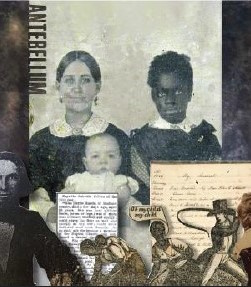
Antebellum
Before the Civil War, the region’s geography, population, economics, and laws shaped the diverse lives of North Carolinians. Enslaved and free Black people rebelled against the institution of enslavement through violent revolt...
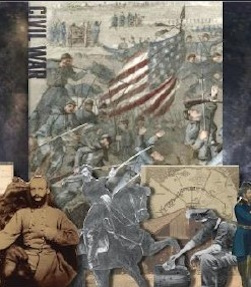
The Civil War
After the election of Republican candidate Abraham Lincoln in November 1860, South Carolina and six other states seceded before he took office, but President Buchanan did not initiate hostilities...
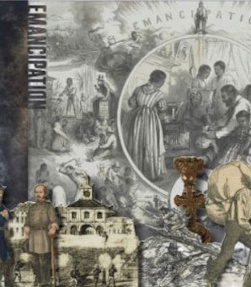
Emancipation
In May 1861, General Benjamin F. Butler gave semi-protected status and partial freedom to enslaved people who escaped to Union lines from Confederate territory, considering them essentially “contraband of...
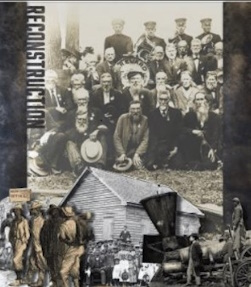
Reconstruction
President Andrew Johnson’s limited Presidential Reconstruction prioritized reconciliation between the North and South. Its effect was to restore the status quo regarding old wealth and power in the South and the political oppression of...
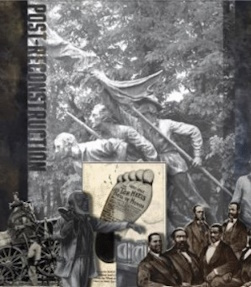
Post-Reconstruction
In the 1880s, struggling farmers united in the Farmers’ Alliance, a national movement that sought agricultural reform and railroad oversight, and formed groups throughout the South...
